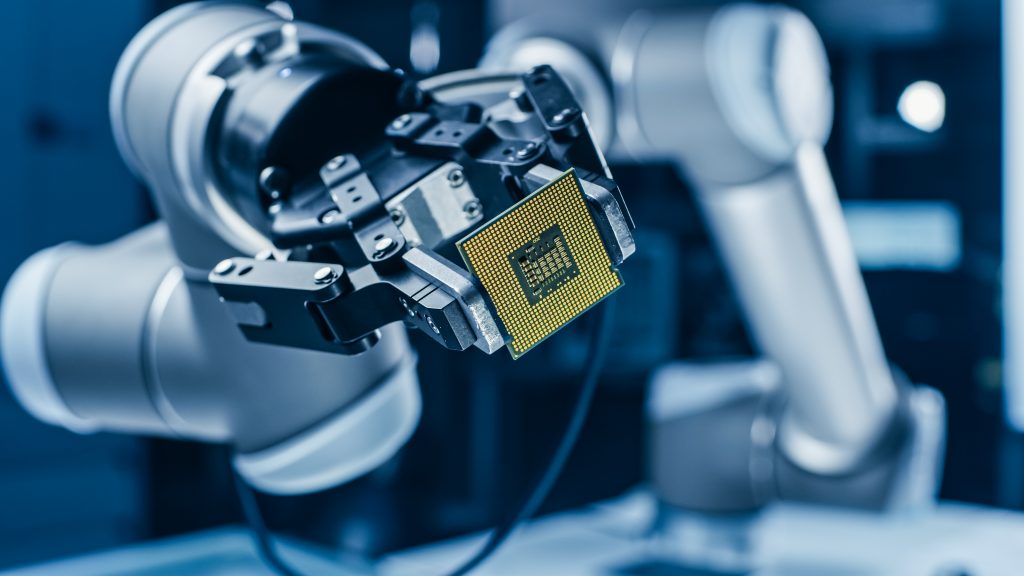
Quality inspection in 2 and 3 dimensions: dimensional type (measuring dimensions and/or detecting burrs, lack of material, etc.) or of a superficial type, detecting defects such as cracks, scratches or any other type of poor

2D Simultaneous Localisation and Mapping (SLAM) to indicate that robots explore the environment in which they are located using sensors, providing maps that will be used to locate them at all times by means of

Manufacturability tests of specific products: evaluation of the feasibility of using Binder jetting additive manufacturing to obtain specific products.

Design and production of small series of functional prototypes. Experimentation and validation of the designed solutions according to criteria established by the client such as efficiency, quality, cycle, etc.

Design of new products with increased performance specifically designed to be manufactured using binder jetting technology: use the design freedom given by the technology to create new products with better characteristics. The design limitation will

Evaluation of new applications of components obtained by BJ: Study on the techno-economic feasibility for the manufacture of components using BJ.

Traditionally, robots are capable of repeatedly positioning a tool to perform tasks that do not require contact and/or a priori knowledge of the arrangement of the objects with which the robot must interact (picking up

General hardware & software services for model training can be provided to reduced datasets, just to show the potential to current industrial needs. Notice that pre-trained models will be provided by default, and specifically related

General hardware & Software services for data augmentation can be provided to reduced datasets, just to show the potential to current industrial needs. To be applied to big datasets or production environments, a specific consultancy

Procedures that, integrating AI/ML algorithms, make it possible to check the predictive potential of a time series. It will speed up and reduce risk when delving into more complex AI/ML-based projects. A benchmark of different

Service that allows extracting its characteristic (systematic) patterns from a data set of individual patterns. The applications are very diverse from consumption analysis, machine behaviour analysis, etc. This will allow claimants to identify systematic behaviour

General hardware & software services for using explainability libraries in specific industrial use cases can be provided to reduced datasets, just to show the potential to current industrial needs. Notice that pre-trained models will be

The goal is to facilitate the understanding of key AI technologies within clear industrial use cases (e.g. reinforcement learning applied to robotics (arm or drones), explainability applied to anomaly detection, damage detection and assessment, ROI

Support to Hardware/Software technologies development and validation through integration support and testing.

Provisioning of access to AIMEN´s digital infrastructure (storage and computing capabilities) for the deployment of digital tools and solutions and their testing under virtual scenarios (cybersecurity solutions, distributed approaches, validation of decentralised tools -DPP-, etc.).

Data interoperability and digital threading (closed-loop digital pipelines provisioning) services through open-standard protocols allowing asset interoperability and maintaining cross references and data integrity, among different manufacturing domains (IT/OT convergence), avoiding the dependence on proprietary solutions

Support to digital solutions development and validation (cybersecurity solutions, platform modules, services, etc.) through integration support and testing (interoperability, connectivity, compatibility) in the AIMEN digital infrastructure.

Data elaboration based on existing manufacturing datasets and provisioning of industry-relevant collections of manufacturing datasets linked to the production systems and capabilities offered by AIMEN (Composites manufacturing, AM, welding, cutting, etc.) ready to be used

Construction of physically based digital twins of material transformation processes (for instance: injection, extrusion, stamping, peen forming, forging, RTM, 3D printing, chemical reactors, etc) and surrounding production environment (for instance: ventilation, pollutants distribution, etc.) to

Construction of physically based simulation models (continuous) of material transformation processes in manufacturing (for instance: injection, extrusion, stamping, peen forming, forging, RTM, 3D printing, chemical reactors, etc) and surrounding production environment (for instance: ventilation, pollutants












Experimentation with the concept of training machine vision solutions with the use of synthetic training data. A set of reference parts will be used to train your machine vision solution. The result of the service





Experiment with mobile platforms that might be used in a manufacturing hall to get products from point A to B across the shop floor.










Views and opinions expressed are however those of the author(s) only and do not necessarily reflect those of the European Union or the Directorate-General for Communications Networks, Content and Technology. Neither the European Union nor the granting authority can be held responsible for them.
© copyright 2024 AI-Matters
© copyright 2024 AI-Matters